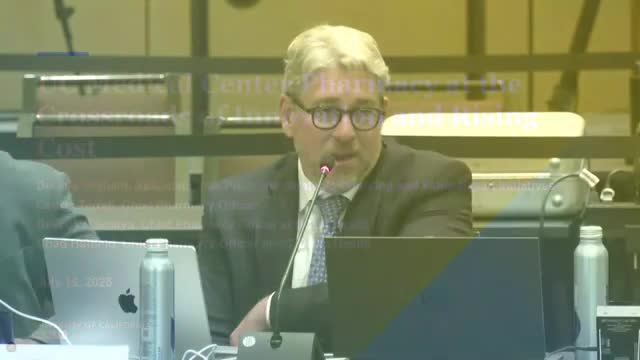UC Health Leaders Address Rising Pharmacy Costs and Innovative Treatment Strategies
July 13, 2025 | University of California, Boards and Commissions, Executive, California
Thanks to Scribe from Workplace AI and Family Portal , all articles about California are free for you to enjoy throughout 2025!

This article was created by AI using a video recording of the meeting. It summarizes the key points discussed, but for full details and context, please refer to the video of the full meeting. Link to Full Meeting
Chad Hatfield, Chief Pharmacy Officer at UC Davis Health, opened the discussion by noting that national drug spending has reached approximately 10% of healthcare costs, with a significant portion attributed to the rapid growth of innovative therapies. He emphasized that the UC Health system serves around two million unique patients annually, with a substantial focus on outpatient care, which accounts for two-thirds of their pharmaceutical expenditures. This shift towards outpatient services is driven by both patient demand and the increasing availability of reimbursable therapies.
The committee also discussed the implications of California's Office of Health Care Affordability (OHCA) and its new growth targets aimed at curbing healthcare expenditures over the next five years. The committee members expressed concerns about how these policies might affect the delivery of innovative therapies, particularly as the costs of curative treatments continue to rise dramatically. For instance, some gene therapies now exceed $4 million, a stark contrast to the $100,000 price tag for certain drugs just a decade ago.
A significant portion of the meeting was dedicated to the 340B Drug Pricing Program, which allows healthcare providers to purchase medications at reduced prices. The committee highlighted the importance of this program in managing costs and ensuring access to necessary treatments for underserved populations. The potential loss of the 340B program could have severe financial implications for the UC Health system, which has reported savings of approximately $1.6 billion from its participation.
The discussions also touched on the role of Pharmacy Benefit Managers (PBMs) in the pharmaceutical supply chain. The committee noted the need for greater transparency in PBM operations, as these entities negotiate drug prices and reimbursement rates, often leading to complexities that can inflate costs for healthcare providers.
In conclusion, the meeting underscored the urgent need for strategic advocacy and collaboration within the UC Health system to navigate the evolving landscape of pharmaceutical care. As the committee prepares to engage with state and federal policymakers, the focus will remain on balancing the delivery of innovative therapies with the imperative to control rising healthcare costs. The next steps will involve continued dialogue with the OHCA and exploring opportunities to enhance the efficiency of drug procurement and management across the UC system.
Converted from Health Services Committee meeting on July 13, 2025
Link to Full Meeting
Comments
View full meeting
This article is based on a recent meeting—watch the full video and explore the complete transcript for deeper insights into the discussion.
View full meeting
